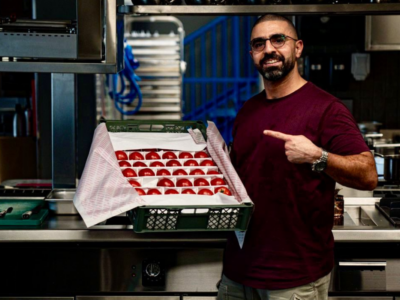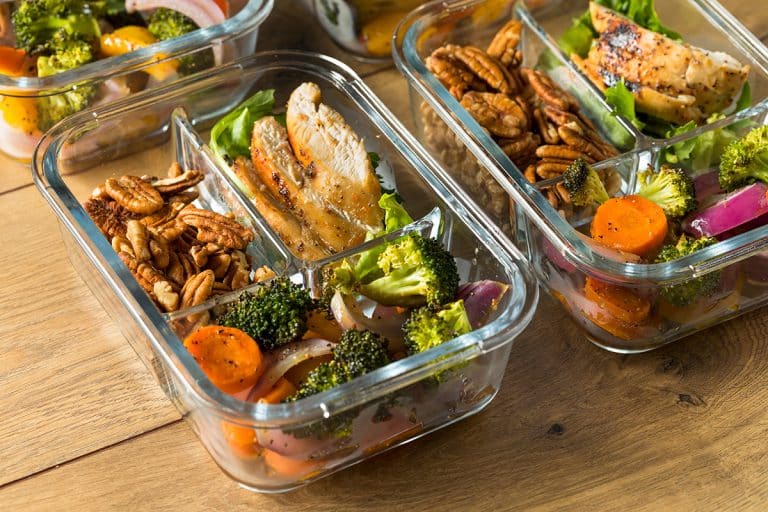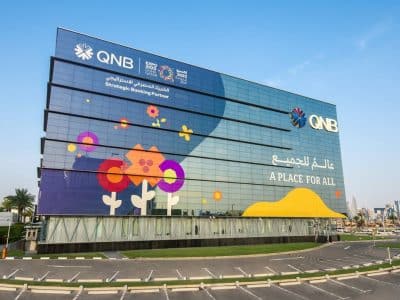Meal plan services in the UAE have rapidly gained popularity, promising convenience, variety, and balance over the last few years.
However, as residents and visitors embrace pre-packaged meal options, the question arises: Are they worth hype?
First things first, what is a meal plan?
Meal plans are pre-determined schedules of meals for a specific period, typically a week. They consider factors such as budget, dietary needs, preferences, and available ingredients.
The concept of planning meals likely dates back to when humans began storing food. However, documented history of structured meal plans is more recent.
According to a report by The Meal Prep Market, in the early 20th century, governments began providing guidance on healthy eating. The US Department of Agriculture released charts outlining food groups for a balanced diet. During World War II, government agencies in the US promoted meal planning for families to manage resources efficiently. These plans offered budget-friendly options and focused on maximising available ingredients.
Following the invention of the microwave in the 1950s and the rise of pre-packaged ingredients, meal prepping was made more viable, the report said, adding fitness enthusiasts in the 1980s and 1990s embraced meal prep to support their goals.
Today, meal plans cater to various needs and preferences, including weight loss, dietary restrictions, budget constraints, and culinary exploration.
So, why is it popular in Dubai?
“Following a nutritious meal plan offers numerous health benefits,” Belinda Daou, Senior Clinical Dietitian at Burjeel Hospital for Advanced Surgery told Arabian Business, shedding light on this growing trend.
“It aids in weight management by providing balanced portions and nutrient-dense foods that help maintain a healthy weight or achieve weight loss goals. Improved energy levels and better digestion result from consuming vitamins, minerals, and fibre-rich foods. Heart health benefits from healthy fats, lean proteins, and whole grains, which help manage cholesterol, blood pressure, and inflammation,” she said.

According to a report by MarkNtel Advisors, the UAE subscription-based meals market was valued at $138.45 million in 2022 and is projected to grow at a CAGR of 4.2 percent from 2024 to 2030.
The market’s growth is driven by demand for ready-to-eat food among working individuals in the UAE, and the rise in middle-class and working populations has increased the need for convenient and fresh food options.
Workers with limited time for meal preparation seek subscription-based meal services, with their busy schedules of UAE’s workforce contributing to the market’s expansion. However, the science behind meal plans is rooted in nutritional balance, Daou said.
The science behind meal plans
“Nutrition science ensures that carbohydrates, proteins, and fats are consumed in optimal proportions – typically 45-65 percent carbohydrates, 10-35 percent protein, and 20-35 percent fats – to provide energy, support tissue repair, and maintain cell function. Micronutrients like vitamins and minerals are crucial for immune support, bone health, and other bodily functions, guiding the inclusion of diverse fruits, vegetables, whole grains, and dairy,” she explained adding that this scientific approach translates into carefully curated meals.
“Lean proteins like chicken, fish, eggs, tofu, beans, and low-fat dairy are essential for muscle repair and growth, typically consumed in portions of 3-4 ounces per meal,” Daou explained adding that whole grains such as brown rice, quinoa, oats, and whole wheat bread provide sustained energy and fibre, with portions around 1/2 cup cooked or one slice per meal.
Fruits and vegetables, rich in vitamins, minerals, and antioxidants, should fill half your plate, aiming for at least 1-2 cups of vegetables and 1 cup of fruit daily.
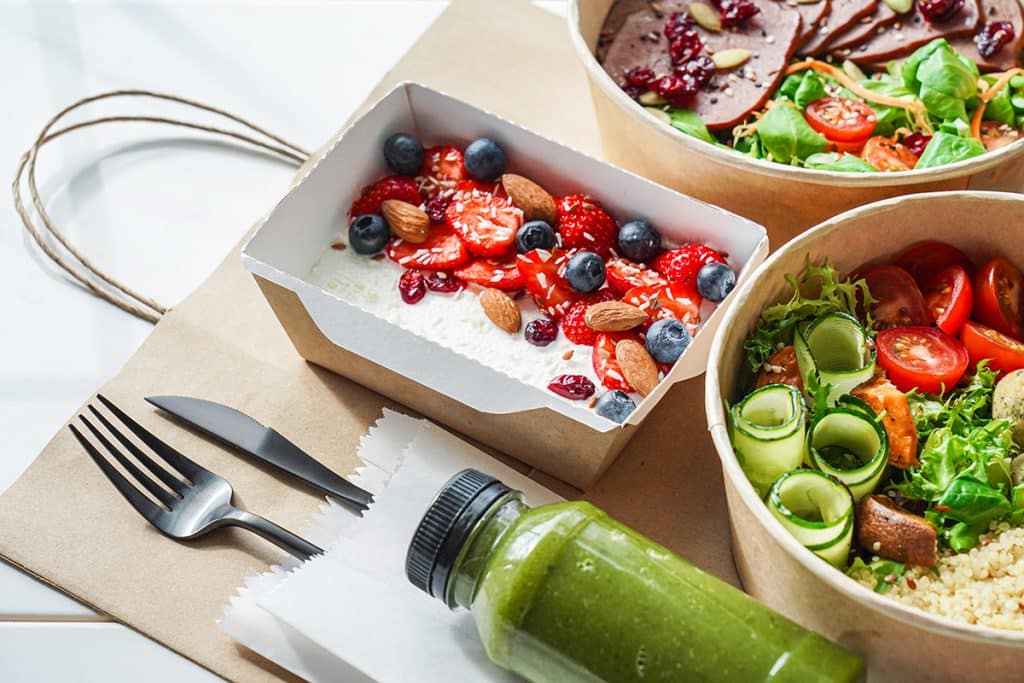
However, the appeal of meal plans lies in their ability to simplify healthy eating
“It simplifies the process of healthy eating by taking the guesswork out of meal preparation and ensuring you make fewer bad decisions. My favourite way of thinking about it is that you will often regret eating a fast-food breakfast. However, you may not want to eat your egg white omelette, but once you do, you feel better for that choice and never regret it,” Colm Carmody, the founder of popular Dubai-based meal plan brand Pura told Arabian Business.
According to Carmody, meal plans are designed to meet specific macronutrient and caloric needs, “which is crucial for achieving health goals.”
When it comes to weight loss, meal plans provide portion-controlled, calorie-restricted meals that keep individuals full and satisfied, he said. However, for muscle building, they offer protein-rich meals to support muscle repair and growth.
“It also ensures we eat a more balanced diet as it does not restrict any of the major macronutrients. For muscle building, they offer protein-rich meals to support muscle repair and growth,” he explained.
Pura’s Carmody added that opting for meal plans save time and effort by eliminating the need for meal planning, supermarket shopping, and cooking.
“Also, you can pretty much eat your meal as soon as you need or want. I think the portioning and cleaning up are by far the greatest time savers,” he added.
Challenges of opting for a meal plan
However, the journey to finding the right meal plan can be fraught with challenges, added Khalid Baareh, the founder and CEO of MealPlanet, an application that aims to revolutionise the industry by bringing together all meal plan brands under one platform.
“Finding a suitable meal plan is complicated and requires time and research” and “customers don’t have visibility on all meal plans pricing and offering that meet their need and budget,” he told Arabian Business.
The diversity of Dubai’s population has played a significant role in the growth of the meal plan industry. “Dubai, along with the wider GCC region, is a perfect melting pot for meal plans to really take off.
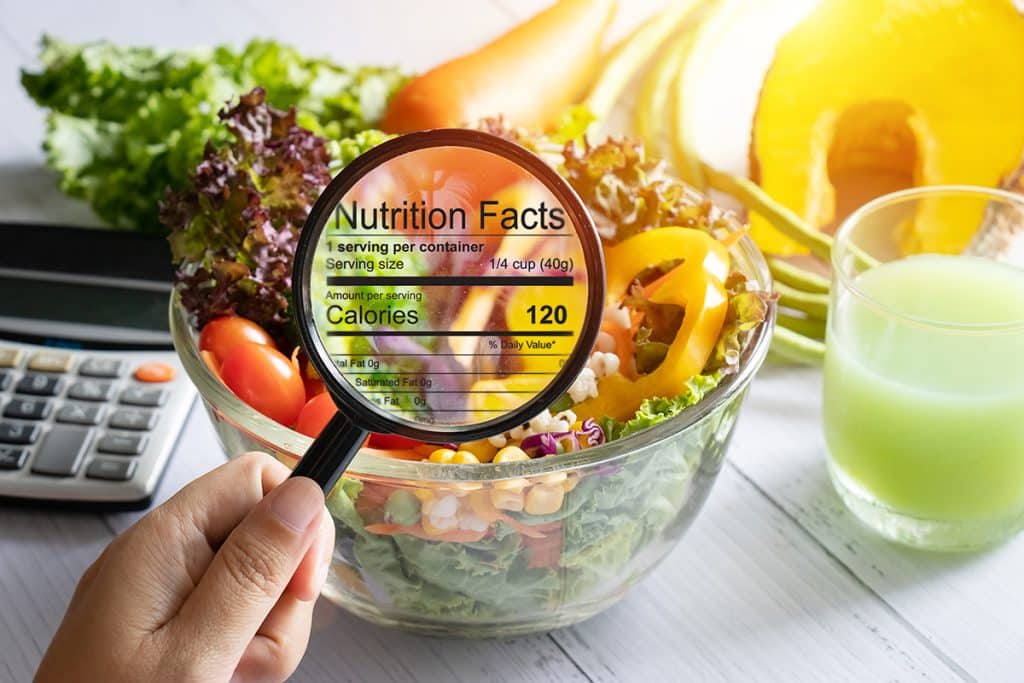
“Here, life moves at lightning speed, and people are constantly on the go, but they’re also increasingly mindful of their health and well-being. With the community becoming more health-conscious and the city growing by the day, there’s this real hunger for convenient yet nutritious meal options. Plus, with plenty of spending power and the rise of online shopping, the stage is set for meal plans to become a staple in people’s lives here. It’s like the perfect recipe for success,” he added.
Catering to a diverse range of dietary preferences, requirements
Meal plans in Dubai cater to a wide range of dietary preferences and requirements.
“For vegan diets, meal plans include plant-based protein sources like beans, lentils, tofu, tempeh, seitan, and edamame, ensuring complete proteins by combining different plant foods such as rice and beans or hummus and whole-grain pita. Various fruits, vegetables, whole grains, nuts, seeds, and legumes can be included to provide essential vitamins, minerals, and fibre,” Daou said.
Halal meal plans incorporate proteins such as chicken, beef, lamb and fish, whilst excluding pork and its derivatives, she explained adding that ingredients, additives and flavourings undergo verification for halal compliance. The plans also include plant-based foods like fruits, vegetables, grains, legumes, nuts and seeds, which are inherently halal.
Carmody added that many companies in Dubai offer various meal plans, with lifestyle options like Keto and Vegan, as well as allergy-free plans such as Gluten-Free or Nut-Free.
“Both are a service requirement; however, handling allergens requires a lot more processes within the kitchen and facility. Cross-contamination is never a good thing, and this is true for vegan meals as well as allergens. But first on every kitchen’s responsibility should be allergen handling. Planning and menu development allow us to provide different types of plans and solutions without being overly restrictive with menus,” he said.
However, the effectiveness of meal plans depends on various factors, according to MealPlanet’s Baareh.
“Following a nutritious meal plan isn’t just about eating. From managing your weight to feeling more energised, improving digestion, and even lowering your risk of chronic diseases, the benefits are many. However, how well it works depends on a few factors. Sticking to the plan, considering dietary needs, and looking at the overall lifestyle habits all play a role in making it effective,” he said.
Which is why for companies offering meal plans, ensuring nutritional value is paramount, according to Daou.
“To ensure nutritious meal plans, companies should engage registered dietitians and nutritionists to design balanced and healthful options tailored to various dietary needs and goals. Conducting thorough nutrient analysis ensures meals meet recommended guidelines for macronutrients and micronutrients. Using high-quality, fresh ingredients, prioritising whole foods, and avoiding processed items high in added sugars, sodium, and unhealthy fats is essential.”
Transparency is another key factor, Carmody added. “Transparency is needed to ensure that plans are being produced in a safe environment and that the meals are weighed properly, not just portioned. An extra 10 grams of oil in each meal will equate to 360 calories per day.”
“I also see pricing getting better overall, which is great for customers and competition. The best changes to date, however, are the number of companies that have stopped using plastic,” he added.

Meanwhile for consumers, choosing the right meal plan requires careful consideration.
“When picking a meal plan, consider what health goals or dietary needs it addresses, the variety of meals offered, how customisable it is, if it fits seamlessly into your routine, and the value for money,” Baareh said.
Nevertheless, the future of meal plans looks promising, with advancements in nutritional science paving the way for more personalised offerings.
“Genetic and microbiome research advances will enable personalized diet plans tailored to individual needs. Recommendations will become more precise as we understand nutrient effects at a molecular level. Emphasis will shift towards food quality and source, promoting sustainable and locally sourced options,” Daou said.
Growing demand for meal plans in Dubai among consumers
Today, as the industry evolves, so do consumer expectations. There’s a growing demand for more detailed nutritional information, including micronutrient content.
“In today’s health-conscious world, customers subscribing to meal plans are actively taking charge of their well-being. They’re not just looking for basic nutritional information; they want meal plans that align with their specific dietary needs and lifestyle choices. While many are satisfied with knowing the macronutrient content, there’s a growing desire for even more detail, such as information on micronutrients,” Baareh said.
Technology is playing a crucial role in this evolution. Apps like MealPlanet are streamlining the process of discovering and managing meal plans.
“By providing a marketplace for meal plans, MealPlanet addresses all the challenges customers face. It helps them discover a wide range of categories and brands, easily subscribe and get their meal plans delivered on time with free delivery, anywhere in the UAE, all on one app,” Baareh added.
The meal plan industry in Dubai is not just about convenience; it’s about fostering a culture of health and wellness.
“Navigating the world of nutrition and meal planning can seem daunting, but with the right guidance, it becomes an empowering journey toward better health. Whether you create a meal plan at home or opt for a pre-made one, the key is ensuring it aligns with your individual health goals, dietary preferences, and lifestyle,” Daou said.
“I think the growth of meal plans in Dubai is possibly down to the transient nature of the country, and of course, it is a city with a high disposable income. We have a very large number of health and fitness facilities that help promote the concept of meal plans, and each of these has a lot of personal trainers and clients, so again this gives the industry a big nudge. I also think that many kitchens are looking to increase revenues, so we see a lot of new concepts popping up, which does help educate the market on meal planning,” Carmody concluded.

